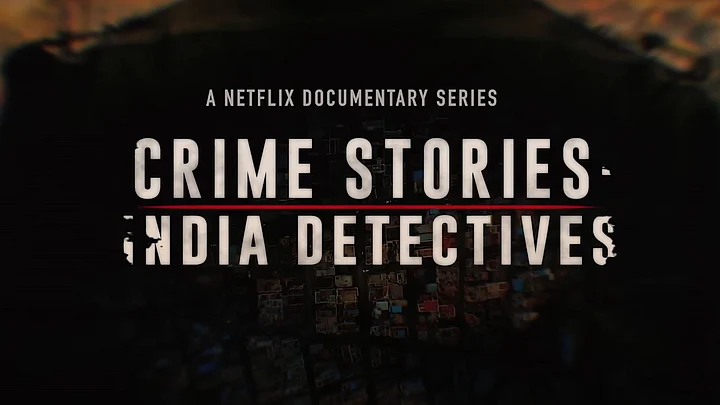Netflix's Kannada docuseries Crime Stories: India Detectives takes viewers on pursuits with the Bengaluru police as they attempt to nab murderers and kidnappers. The four episodes closely follow the investigation of three murders and one kidnapping, by filming the police's visits to the crime scenes, interrogations and even the accused’s confessions.
While the show vividly exposes viewers to the stark inequality in the city, temperament of police officers, and the psyche of those accused, the show's apathy towards privacy and dignity is evident.
Glimpses of Life in Bengaluru
Crime Stories allows viewers to catch poignant glimpses of life in Bengaluru. The directors have carefully chosen incidents that capture consumerism, dire poverty, aspirations, and the severe power imbalance between the state and its citizens. The ingenious camera work enhances the narrative.
In the first episode, a dejected woman allegedly kills her mother and injures her brother. Her dejection, due to mounting debts and an inadequate income, is portrayed as a consequence of excessive consumerism and failed aspirations, which plague numerous people in the city.
The second episode follows the investigation of an alleged criminal's murder by a couple who was being tormented by him. Though the gruesome murder is not justified, it is hard to ignore the diminishing faith in institutions, which nudges people to take law into their own hands.
The third episode revolves around the murder of a sex worker. It unfolds the trauma experienced by sex workers due to stigma and societal prejudice from society and the police department. In the final episode, the cops are seen struggling to rescue a kidnapped baby. The baby's parents are homeless and live below a flyover.
Abject poverty and inequality radiate throughout the episode and it uncovers the humiliation experienced by the weak and marginalised.
The State of Policing
The highlight of the show is the insight into the functioning of the police in Bengaluru. It is undeniable that the cops worked hard to crack these cases and capitalized on their instincts and intelligence. However, the show exposes the nasty side of policing which includes inflicting custodial torture, using filthy language, and humiliating citizens.
While interrogating a suspect in the kidnapping case, an Inspector is seen thrashing him with a belt. The alleged murderer of the sex worker is seen limping in the lock-up after a round of interrogation. Throughout the show, the cops verbally abuse suspects and threaten them with custodial violence when they do not confess. If cops do not hesitate to inflict custodial torture despite being filmed, it is obvious that safeguards against torture are weak and it has been normalized.
It is disconcerting to listen to some of the police officers' statements. One of the Sub Inspectors was unabashed about her prejudice against sex workers and declared that she felt the urge to hit them. Though she claimed to have changed her opinion, it is obvious that such deep prejudices in police officers can be detrimental to human rights.
Another police officer coldly stated that, at times, innocent people may be subject to violence during an investigation, justifying it by saying that if police officers are sensitive about these things, they cannot function well. When the homeless man complained about his child getting kidnapped, he was shamed for not having bathed. He was also ridiculed for not spending money on grooming!
Violation of Privacy and Due Process
While the directors intended to portray reality and help us understand the system better, the violations of privacy and dignity of individuals deserve condemnation. Firstly, the interrogation of witnesses and suspects should not have been filmed. Some of the interrogations were humiliating.
For instance, during the investigation of the sex worker’s murder, the cops wrongly suspected a mason. The cops verbally abused him, disclosed personal details about his relationships and sex life, and even threatened him with violence.
By showing this, the directors have perhaps caused irreparable harm to his reputation and dignity. There are other instances where private information of those accused and the suspects were revealed, which reflects directors' gross insensitivity.
There is also the grave danger of the accused being deprived of a fair trial. The show depicts the accused’s guilt and expounds the police's version. Furthermore, the accused are seen confessing to their crimes. This can adversely affect their right to a fair trial.
Apart from inducing a belief in the minds of the citizens that the accused are guilty, it can subconsciously affect judges and prosecutors as well. Merely stating at the beginning of the show that an accused is presumed to be innocent until proven guilty is inconsequential, especially considering the powerful narration of guilt later.
Let us not forget that these people run the risk of being awarded the death penalty or life imprisonment if convicted.
A Problematic Portrayal of Reality
The show succeeds in exposing Bengaluru’s dark underbelly and the nature of policing in the city. However, this comes at a cost: the dangerous impact on privacy, dignity and due process.
(This is an opinion piece and the views expressed are the author’s own. The Quint neither endorses nor is responsible for them.)
(At The Quint, we question everything. Play an active role in shaping our journalism by becoming a member today.)
